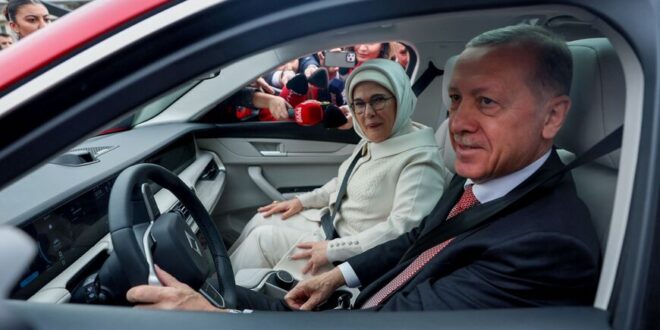The Turkish government unleashed a fresh regional charm offensive ahead of the critical May 14 vote, as the top Turkish diplomat announced planned and potential meetings with his Egyptian and Syrian counterparts.
Turkey’s Foreign Minister Mevlut Cavusoglu said on Monday that his Egyptian counterpart Sameh Shoukry would pay a visit to his country in the upcoming days, during which Ankara and Cairo could announce the full restoration of diplomatic ties between the two countries, which were severed in 2013.
Speaking on live TV, Cavusoglu described the prospect of the two capitals announcing the reinstallation of ambassadors mutually during Shoukry’s visit as highly likely.
“We’ve already started the preliminary work. We will discuss further when [Shoukry] comes. It will highly likely happen,” Turkey’s top diplomat said.
Yet he reiterated his reserved position on a potential meeting between Turkish President Recep Tayyip Erdogan and his once arch-enemy Egyptian leader Abdel Fattah al-Sisi before Turkey’s fateful May 14 elections.
“I think it will probably take place after the elections,” said Cavusoglu.
Egypt marks the most challenging leg of the regional diplomatic push Ankara launched two years ago in a bid to overcome Turkey’s regional isolation by restoring ties with its former regional rivals including Israel, Saudi Arabia, the United Arab Emirates and Egypt.
The two eastern Mediterranean countries gradually severed their diplomatic ties after the events following the 2013 coup that overthrew Egypt’s Muslim Brotherhood-led government, with Erdogan transforming anti-coup demonstrators’ four-finger salute into his signature hand gesture. The two capitals are also at odds over the Libyan civil war and territorial claims in eastern Mediterranean waters.
Erdogan tamped down his outbursts against Sisi and cracked down on the Turkey-based Muslim Brotherhood leaders’ criticism of the Egyptian government as part of Ankara’s diplomatic charm offensive, which has seen Turkey improving its ties with Israel, Saudi Arabia and the UAE.
The contacts between Ankara and Cairo remained largely limited to technical-level talks between the two countries and a brief meeting between Erdogan and Sisi late last year on the sidelines of the FIFA World Cup in Qatar.
The Feb. 6 twin earthquakes that killed more than 50,000 people in Turkey, and economic challenges in both countries, however, have oiled the fence-mending wheels between Ankara and Cairo with Shoukry traveling to Turkey for the first time since 2016 in February. His trip was followed with Cavusoglu’s visit to Cairo last month, making him the first Turkish foreign minister to visit the country since 2012.
Rapprochement with Syria
Syria has also been brought into the fence-mending fold largely owned by the mediating efforts of Russia, which has long sought to reconcile Ankara and Damascus. The Russian, Syrian and Turkish defense and intelligence chiefs met in Moscow in a landmark three-way meeting in late December after nearly a decade of hostilities.
The talks later turned to a four-party format with the involvement of Iran. Ankara provides military and political support to Sunni rebels trying to oust Syrian President Bashar al-Assad, while Moscow and Tehran back Damascus.
The latest meeting of the quadruple mechanism took place in Moscow earlier this month between the deputy foreign ministers of the four countries.
Speaking Monday, Cavusoglu said the top diplomats of the four countries might gather in Moscow in early May.
Turkey seeks Damascus’ cooperation against the Syrian Kurdish groups and aims to ensure the return of some 4.5 million Syrians residing in Turkey as part of its rapprochement efforts with the Syrian government.
Though speaking on Monday, the top Turkish diplomat dismissed a link between the Ankara-Damascus thaw and the election campaign, Syrian refugees in Turkey remain one of the top concerns of the country’s some 65 million electorate.
 Eurasia Press & News
Eurasia Press & News



